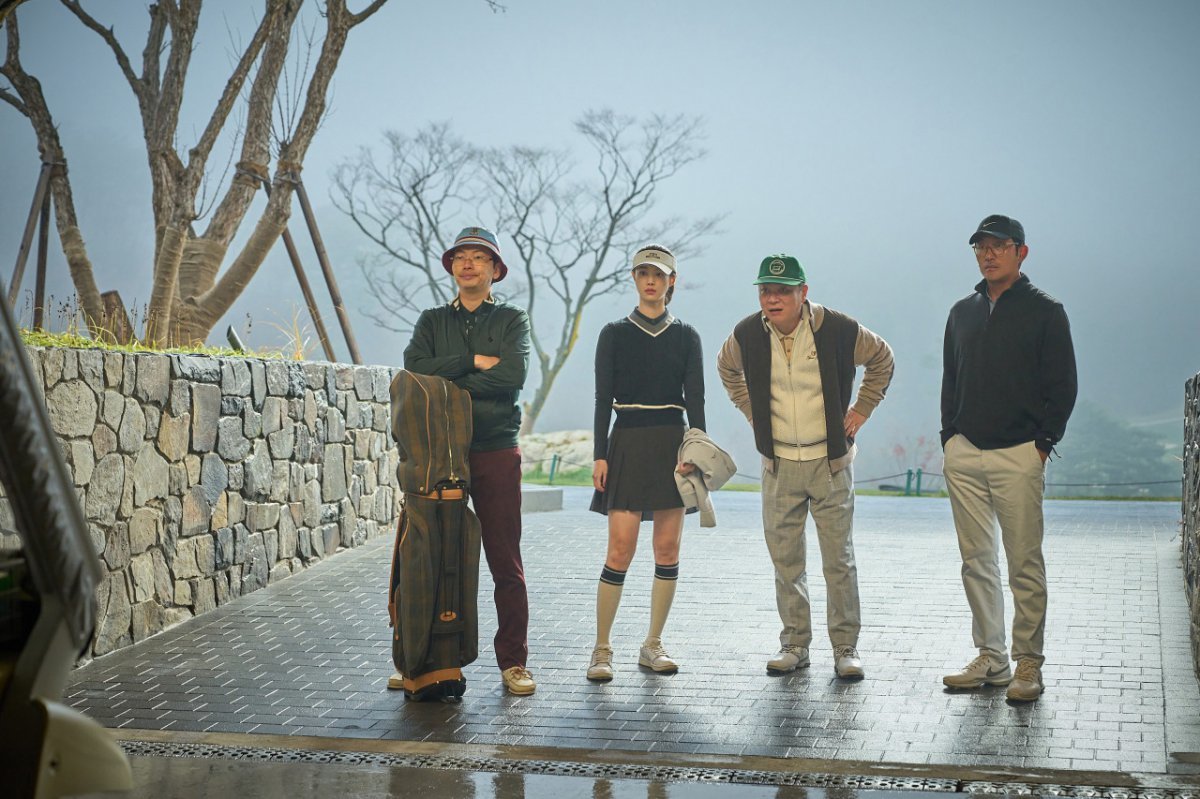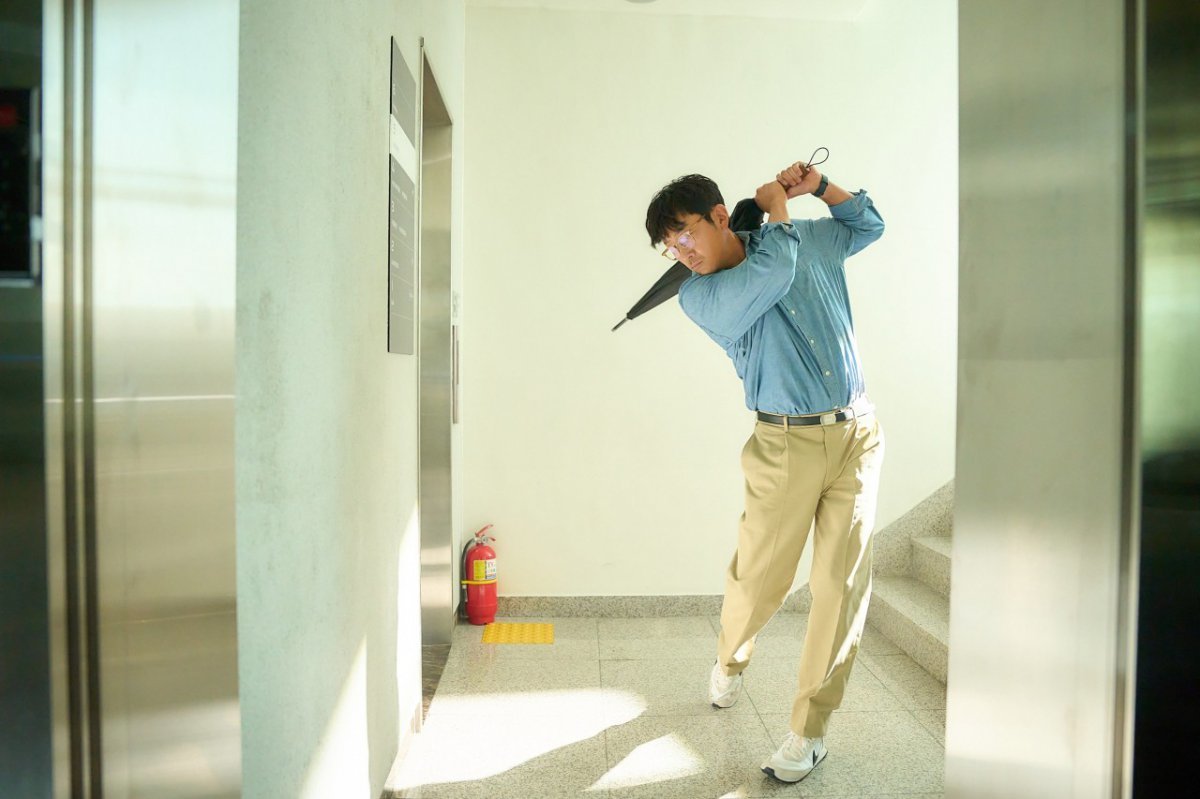“Upgraded ‘Rolco’”… Ha Jung-woo‘s ‘Lobby’, a smooth and successful struggle [Review]

Photo courtesy of Showbox
The sport of ‘golf’, which may feel distant to some, is merely a subject matter. Although it wears the disguise of a ‘golf movie’, it is not golf, but a slick comical farce that depicts the sometimes petty and sometimes annoying crowd of people gathered at a golf course with a great ‘taste of words’, Ha Jung-woo‘s third directorial film, ‘Lobby’.
‘Lobby’, which will be released on April 2, depicts the ‘funny but sad’ struggles of Chang-wook, the CEO of a startup who has good technology but no business acumen, ‘backs’, or money. When he finds out that his friend-turned-rival, a natural-born businessman named Gwang-woo (Park Byung-eun), was able to steal his opportunities time and again because of his “entertainment,” he embarks on his first lobbying golf in his life to succeed in a 4 trillion won national project bid.
The film’s core subject matter, golf, is also a barrier to entry for the film. Although golf has long been popular, it is a sport that still feels distant to some. Furthermore, golf is not a sport that focuses on the dynamic pleasure characteristic of sports films, like soccer or baseball, so some viewers may have questioned the film early on.

Photo courtesy of Showbox
It’s not just Chang-wook and Chief Choi. The rival who covets his colleagues‘ achievements and the golf course owner who tries to fill his own pockets in the cracks of power, etc., appear in the movie as characters that we can commonly meet inside and outside of company life, or in our daily lives.
In particular, most of the female characters, except for Chief Cho (Kang Mal-geum), who is a symbol of power and corruption, are well-centered, while the male characters, including Chief Choi who is not worthy of his age and is into young women, Bae Woo-woo (Choi Si-won) who is full of bluff and superficiality, and the husband (Park Hae-soo) who has hypocrisy and installs CCTVs throughout the house, are all portrayed as ‘low men’ or ‘small people’, which is noteworthy. This is why this film also seems like a sharp satire targeting ‘Mr. Gae-Jeo-Ssi’ (a derogatory term for middle-aged men who lack sense).

Photo courtesy of Showbox
This film, Ha Jung-woo’s third directorial effort, is reminiscent of his first directorial effort ‘Roller Coaster’ in that the various characters constantly talk and create humor. ‘Roller Coaster’ is also a work that has the tiki-taka ‘verbal gags’ of its many characters as its greatest strength. Although it only attracted 270,000 viewers when it was released in 2013, it was belatedly brought to the forefront in the secondary rights market because it captured the tastes of hardcore viewers, and is considered a ‘hidden masterpiece’.
However, what stands out the most is that it doesn‘t follow the shortcomings of ‘Roller Coaster’. It is true that the individuality of ‘Roller Coaster’ can be felt in ‘Lobby’, where the 10 main characters, each with their own unique colors, mesh together amazingly like cogwheels and continue the tiki-taka conversation without a break. However, unlike ‘Roller Coaster’, which overly dramatized all of the characters, it differentiates itself by placing various types of real-life characters that we can see around us in the right places. Through this, it creates a wider range of public laughter than the ‘Roller Coaster’, which only appealed to the tastes of some hardcore audiences.
Reporter Seungmi Lee smlee@donga.com
This article is automatically translated using Google AI. If you notice any inaccuracies, please let us know at allkstar@donga.com.

